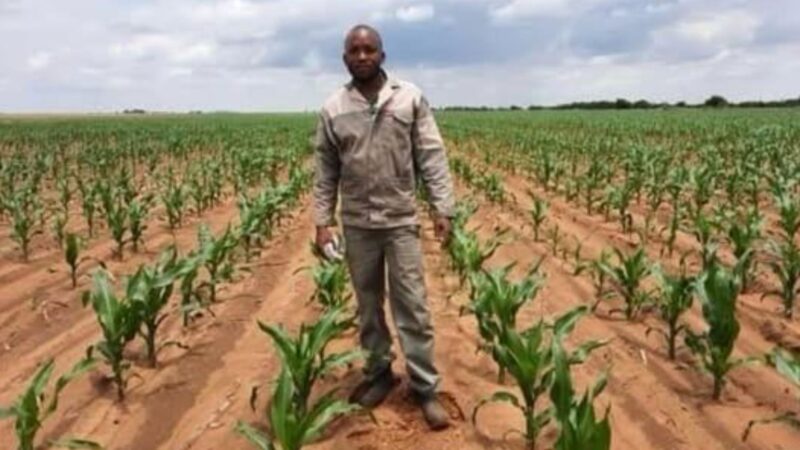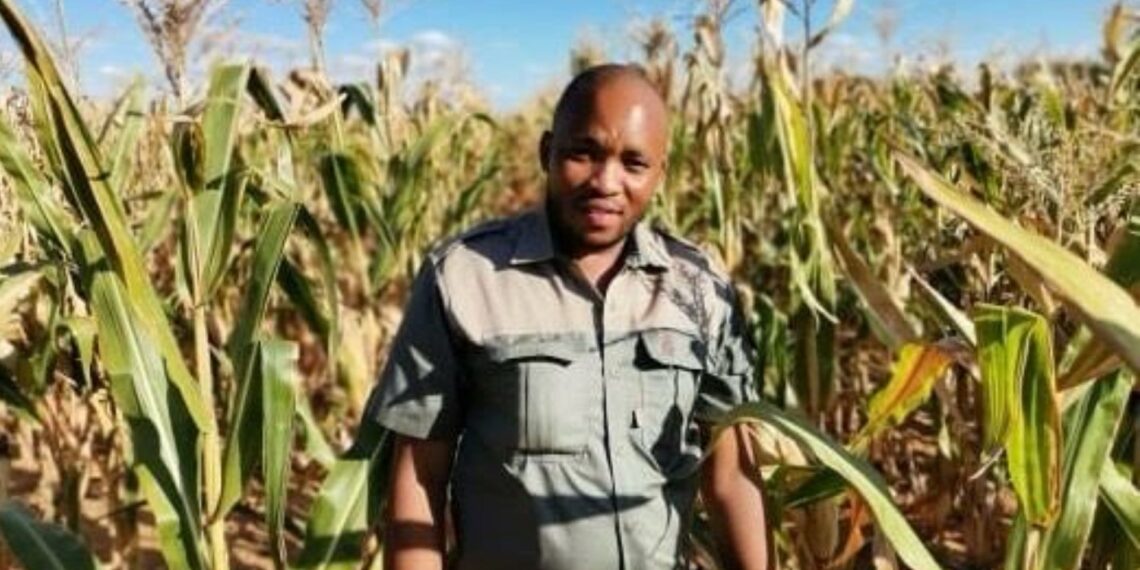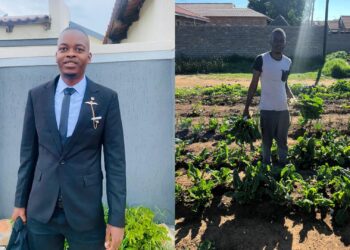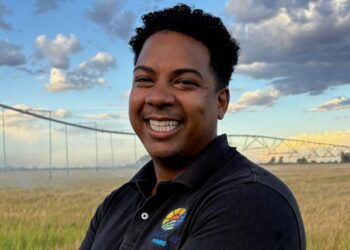Studying and searching for a job can be uncertain, with no guarantees that your path will match your dreams. For Botlhale Tshabalala, this meant shifting sharply from electrical engineering to building a diversified farming enterprise that blends crop and cattle production.
Born in Itsoseng, a township in North West’s Driehoek area, Tshabalala was the youngest of three.
When he was about nine years old, his family moved to the nearby town of Lichtenburg in search of better opportunities. His mother, Melitta, was a teacher, and his father, David, worked as a salesperson in a furniture shop while also farming part-time back home.
“He [father] later decided to open a liquor restaurant, a bottle store and also farmed full-time. I was now exposed to the entrepreneurial environment from a young age because I loved working with my hands and fixing things.
“My dad always took me with him to check on the lands, cattle, and goats. He’d also take me to his liquor outlet, where I’d be hands-on, helping with sales on busy days, loading fridges, and even merchandising shelves,” Tshabalala says.
This early blend of education, entrepreneurship, and farming laid a strong foundation that would shape his future.
Related stories
- Gogo’s herbal wisdom grows into Khula Hair Organics brand
- Sisters turn struggles into well-oiled natural haircare brand
- From football to fine wine: Raise a glass to Sindile’s Sinbad wines
Forging a new path
Building on these experiences, after matriculating in 2009, he went to a college in Pretoria to pursue theoretical courses in electrical engineering up to N4. After completing this, he returned home to further his studies in fitting and turning up to N2.
His dream was to become a multi-skilled worker, as he passionately loved using his hands.
Tshabalala completed this too and applied to local cement factories, hoping for an apprenticeship. However, their response was slower than he expected, so he had to explore other options to keep busy and earn money.
“My wish was to follow my dad’s footsteps and work on the farm part-time. When I realised I hadn’t been called [by the cement factories] yet, my dad advised me to join him in farming for the time being. At that time, he had given me a heifer calf and helped me buy some production inputs to start sunflower production.
By the time one of the cement companies responded, he had already decided to pursue full-time farming in 2013. However, farming has its ups and downs – a reality that hit Tshabalala hard at times.
“Sometimes, I questioned whether I made the right choice, as some years were tough,” Tshabalala admits.
“My family has always had my back. When I decided to fully venture into farming, my mom was the one having some doubts, knowing that farming isn’t an easy journey. But she also told me she knows I’m a hard worker, and with my dad’s guidance by my side, she believes I will flourish.
“As for my dad, he was over the moon because he surely knew I was destined to elevate and make a huge impact. He was happy knowing he would no longer have to carry all the responsibilities alone.”

Sadly, his mother passed away in 2014 and never saw her son grow through this journey. Yet, his dad, sister Mamositsana, brother Thapelo, and wife Lerato – then still his girlfriend – always had faith in him, often reminding him that he was destined for success.
Challenges of communal land
With that unwavering support, today he runs a thriving farming enterprise on the communal lands of Driehoek Village, producing maize, sunflower, and small white beans. He also breeds a fully-fledged commercial Red Brahman herd.
Farming on communal lands comes with its own set of challenges. “I face many challenges on communal lands. The lands don’t have any fencing, which causes issues like animal invasion and crop theft.
“Inputs are also at risk as they are often stolen. I once had to rebuild a tractor engine that suddenly failed. Upon inspection, I discovered metal wires had been placed in the cylinder head cover, causing serious damage,” Tshabalala explains.

EARLY-BIRD TICKETS ARE AVAILABLE NOW!
Africa’s biggest youth-in-agriculture gathering is back – and it’s only getting bigger!
In 2014, 26 of his pregnant heifers were stolen and have never been recovered.
“We also decided to sell all our small stock, including Boer goats, as they were easily stolen. I am unable to fully practice biosecurity because, although I vaccinate and immunise my cattle, they come into contact with other farmers’ unvaccinated cattle in the fields. I even fail to meet my breeding plan objectives because bulls from outside herds jeopardise my breeding programme,” he explains.
Leasing some state land would be a game-changer for him, as it would free him from the challenges that currently limit his capacity to grow.
Despite these hurdles, he remains determined. “My greatest achievement since starting this farming journey has been growing from an emerging farmer to a commercial farmer. With all the obstacles I’ve faced, I still carry the spirit of resilience, love, and passion for what I do, and I’ve just kept soldiering on.”
READ NEXT: Mastering poultry feed: Tips to maximise efficiency

















